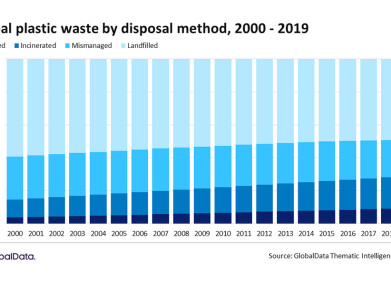Fuel for Thought
UN Begin Negotiations to End Plastic Pollution
Dec 06 2022
Last week, in Uruguay’s Punta del Este, the Intergovernmental Negotiating Committee, established by the UN’s historic resolution on plastics earlier this year, held its first session. With representatives from all over the world and all quarters of society, from civil servants and legislators to businesspeople and activists, the aim of the Committee is to draw up a legally binding instrument to end plastic pollution of all kinds, due to be published in 2024.
At the moment, the UN reports, there are 460 million tonnes of plastic being produced every year and it’s set to continue rising – tripling by 2060, if estimates are correct. Urgent action, then, is absolutely necessary. Jyoti Mathur-Filipp, Executive Secretary of the Committee, agrees: “The science is clear: we need rapid, ambitious and meaningful global action to curb plastic pollution.”
This first session, code-named INC-1, aims to take what’s called a life cycle approach to plastic pollution. It’s the consensus amongst experts on the topic that circularity is not a silver-bullet, that trickier prospects will need to be explored. “We are not going to recycle or ban our way out of the plastics pollution crisis,” argues Sheila Aggarwal-Khan, Director of the United Nations Environment Programme’s Economy Division. In order to deal with plastic pollution, especially in marine environments, the life-cycle approach takes a bird’s-eye view, addressing everything from the design process to the bin in order to reduce the overall amount of plastic involved.
It’s an approach in which the UN have a lot of confidence. A report by the United Nations Environment Programme suggests that life-cycle thinking can reduce the volume of plastic waste being dumped into the world’s oceans by around 80%, saving states USD7bn, reducing total greenhouse gas emissions by 25%, and creating 700,000 new jobs. The future, it seems, is bright; the devil, however, is in the negotiations.
Commentators have suggested that the meeting might involve general discussions regarding the setting of ambitious new targets for reductions, what sort of things entities might be legally required to measure, as well as establishing an infrastructure for reporting. There is an expectation that the specifics of new Extended Producer Responsibility (EPR) legislation, subsidies, and taxes will be hashed out, as well as which substances, polymers or products will be subject to bans or restrictions. Concurrent with these negotiations was an open forum attended by around 1,800 participants from across the plastics supply-chain, intended to supply the negotiations with more information about the challenges and opportunities on the ground.
There’s a lot for the negotiators to get through, then – and it’s only the first of five sessions before the deadline for finalisation in February 2024. But there’s a lot of hope and enthusiasm for this resolution. “With collaboration and urgent action,” emphasises Mathur-Filipp, “INC-1 can signal the official start of a really meaningful and impactful movement – now and into the future.”
Digital Edition
PIN 25.2 Apr/May
May 2024
Safety - Carbon monoxide toxic and flammable gas detection Analytical Instrumentation - Density: A fundamental parameter at critical stages within the petroleum sector - Advancements and...
View all digital editions
Events
Jul 10 2024 Birmingham, UK
Thailand Oil & Gas Roadshow 2024
Jul 11 2024 Rayong, Thailand
Jul 20 2024 Denver, CO, USA
Jul 21 2024 Cape Town, South Africa
Jul 24 2024 Bogata, Colombia



















